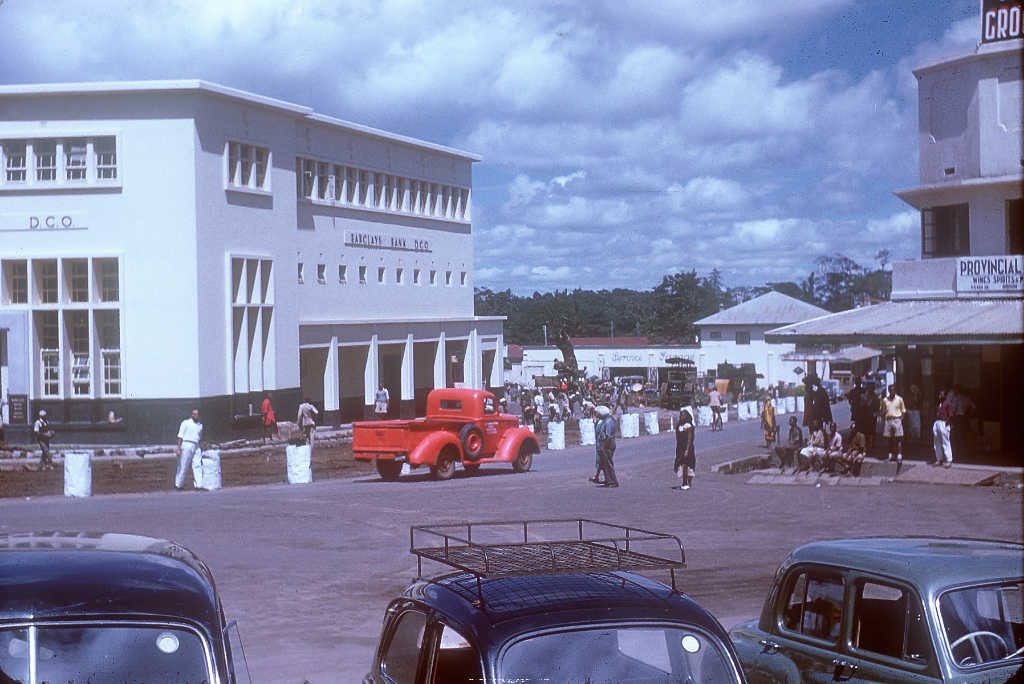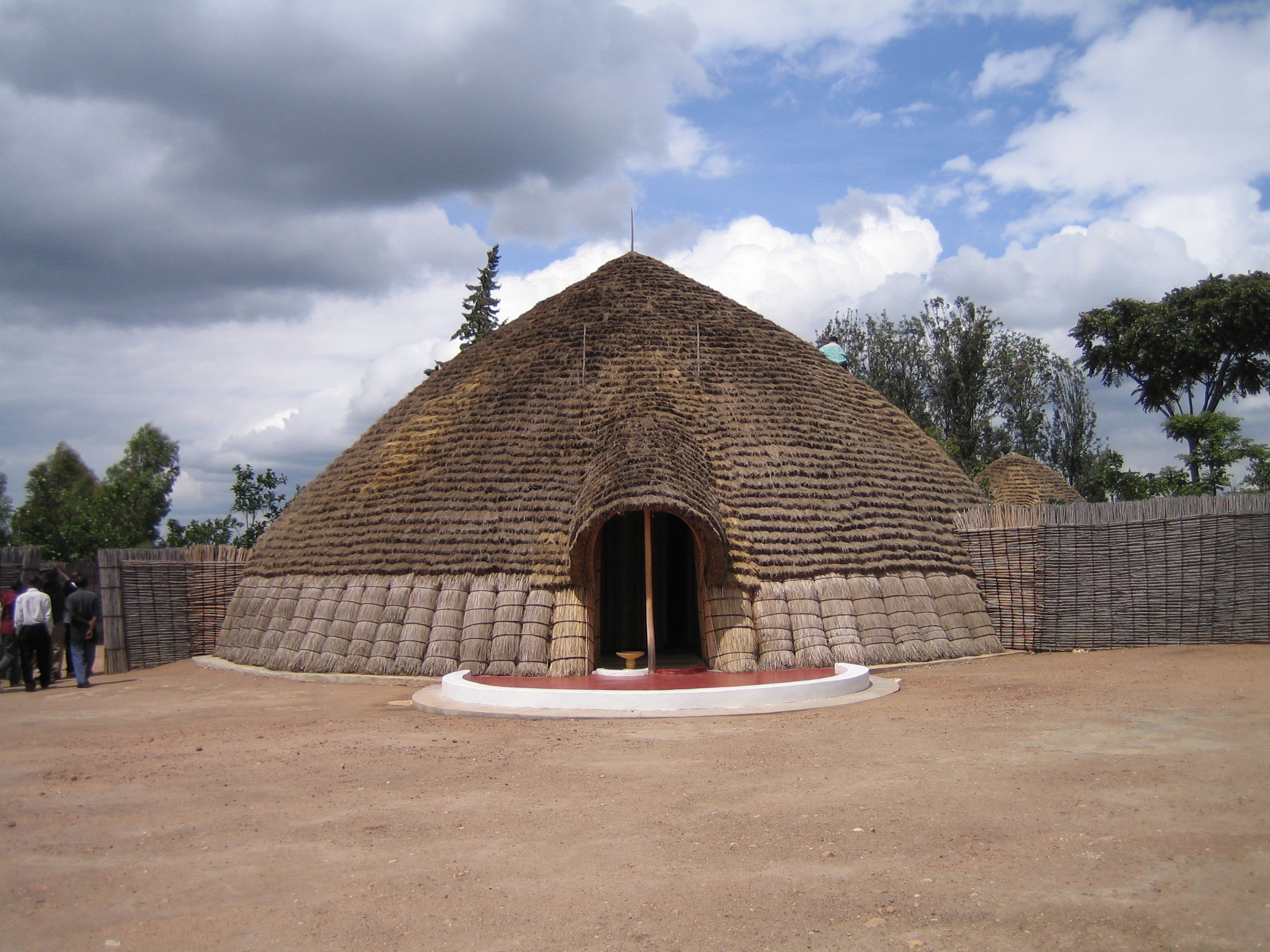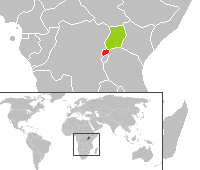|
United Nations Security Council Resolution 977
United Nations Security Council resolution 977, adopted unanimously on 22 February 1995, after recalling Resolution 955 (1994) in which the council was to determine the seat of the International Criminal Tribunal for Rwanda (ICTR) and noting a report by the Secretary-General Boutros Boutros-Ghali, the council decided that its seat would be in Arusha, Tanzania. According to the Secretary-General's report, the decision signalled the second phase of the process in establishing the ICTR, which would now allow the process of selecting the six trial judges to begin. Rwanda's representative to the council Manzi Bakuramutsa said that, while his government did not support the decision to allocate the seat outside Rwanda, it would still co-operate with the security council. See also * List of United Nations Security Council Resolutions 901 to 1000 (1994–1995) * Rwandan Civil War * Rwandan genocide * United Nations Observer Mission Uganda–Rwanda The United Nations Observer Mission Ug ... [...More Info...] [...Related Items...] OR: [Wikipedia] [Google] [Baidu] |
Arusha Region
Arusha City is a Tanzanian city and the regional capital of the Arusha Region, with a population of 416,442 plus 323,198 in the surrounding Arusha District Council (2012 census). Located below Mount Meru (Tanzania), Mount Meru on the eastern edge of the eastern branch of the East African Rift, Great Rift Valley, Arusha City has a temperate climate. The city is close to the Serengeti National Park, the Ngorongoro Conservation Area, Lake Manyara National Park, Olduvai Gorge, Tarangire National Park, Mount Kilimanjaro, and Mount Meru (Tanzania), Mount Meru in the Arusha National Park. The city is a major international diplomatic hub. It hosts the African Court on Human and Peoples' Rights, African Court of the African Union and is the capital of the East African Community. From 1994 to 2015, the city also hosted the International Criminal Tribunal for Rwanda, but that entity has ceased operations. It is a multicultural city with a majority Tanzanian population of mixed backgroun ... [...More Info...] [...Related Items...] OR: [Wikipedia] [Google] [Baidu] |
United Nations Security Council Resolution 955
United Nations Security Council resolution 955, adopted on 8 November 1994, after recalling all resolutions on Rwanda, the Council noted that serious violations of international humanitarian law had taken place in the country and, acting under Chapter VII of the United Nations Charter, established the International Criminal Tribunal for Rwanda (ICTR). The Security Council appreciated the work of the Commission of Experts established in Resolution 935 (1994), and expressed its concern at reports of genocide and other widespread violations of international humanitarian law had taken place in Rwanda. It stated that the situation constituted a threat to international peace and security and was determined to put an end to such crimes and bring those responsible to justice in order to restore peace. The Council believed that the establishment of an international tribunal would ensure that such violations are halted and addressed. In this regard, the need for international co-operation ... [...More Info...] [...Related Items...] OR: [Wikipedia] [Google] [Baidu] |
International Criminal Tribunal For Rwanda
The International Criminal Tribunal for Rwanda (ICTR; french: Tribunal pénal international pour le Rwanda; rw, Urukiko Mpanabyaha Mpuzamahanga Rwashyiriweho u Rwanda) was an international court established in November 1994 by the United Nations Security Council in Resolution 955 in order to judge people responsible for the Rwandan genocide and other serious violations of international law in Rwanda, or by Rwandan citizens in nearby states, between 1 January and 31 December 1994. The court eventually convicted 61 individuals at a cost of $1.3 billion. In 1995, it became located in Arusha, Tanzania, under Resolution 977. From 2006, Arusha also became the location of the African Court on Human and Peoples' Rights. In 1998 the operation of the tribunal was expanded in Resolution 1165. Through several resolutions, the Security Council called on the tribunal to complete its investigations by end of 2004, complete all trial activities by end of 2008, and complete all work in 2012. ... [...More Info...] [...Related Items...] OR: [Wikipedia] [Google] [Baidu] |
Boutros Boutros-Ghali
Boutros Boutros-Ghali (; , ar, بطرس بطرس غالي ', ; 14 November 1922 – 16 February 2016) was an Egyptian politician and diplomat who served as the sixth Secretary-General of the United Nations (UN) from 1992 to 1996. An academic who previously served as acting foreign minister and vice foreign minister of Egypt, Boutros-Ghali oversaw the UN over a period coinciding with several world crises, including the Breakup of Yugoslavia and the Rwandan genocide. He went on to serve as the first Secretary-General of La Francophonie from 1997 to 2002. Early life and education Boutros Boutros-Ghali was born in Cairo, Egypt, on 14 November 1922 into a Coptic Orthodox Christian family. His father Yusuf Butros Ghali was the son of Boutros Ghali ''Bey'' then ''Pasha'' (also his namesake), who was Prime Minister of Egypt from 1908 until he was assassinated in 1910. His mother, Safela Mikhail Sharubim, was daughter of Mikhail Sharubim (1861–1920), a prominent public servant a ... [...More Info...] [...Related Items...] OR: [Wikipedia] [Google] [Baidu] |
Arusha
Arusha City is a Tanzanian city and the regional capital of the Arusha Region, with a population of 416,442 plus 323,198 in the surrounding Arusha District Council (2012 census). Located below Mount Meru on the eastern edge of the eastern branch of the Great Rift Valley, Arusha City has a temperate climate. The city is close to the Serengeti National Park, the Ngorongoro Conservation Area, Lake Manyara National Park, Olduvai Gorge, Tarangire National Park, Mount Kilimanjaro, and Mount Meru in the Arusha National Park. The city is a major international diplomatic hub. It hosts the African Court of the African Union and is the capital of the East African Community. From 1994 to 2015, the city also hosted the International Criminal Tribunal for Rwanda, but that entity has ceased operations. It is a multicultural city with a majority Tanzanian population of mixed backgrounds: indigenous African, Arab-Tanzanian and Indian-Tanzanian population, plus a small European and North Am ... [...More Info...] [...Related Items...] OR: [Wikipedia] [Google] [Baidu] |
Rwanda
Rwanda (; rw, u Rwanda ), officially the Republic of Rwanda, is a landlocked country in the Great Rift Valley of Central Africa, where the African Great Lakes region and Southeast Africa converge. Located a few degrees south of the Equator, Rwanda is bordered by Uganda, Tanzania, Burundi, and the Democratic Republic of the Congo. It is highly elevated, giving it the soubriquet "land of a thousand hills", with its geography dominated by mountains in the west and savanna to the southeast, with numerous lakes throughout the country. The climate is temperate to subtropical, with two rainy seasons and two dry seasons each year. Rwanda has a population of over 12.6 million living on of land, and is the most densely populated mainland African country; among countries larger than 10,000 km2, it is the fifth most densely populated country in the world. One million people live in the Capital city, capital and largest city Kigali. Hunter-gatherers settled the territory in the St ... [...More Info...] [...Related Items...] OR: [Wikipedia] [Google] [Baidu] |
List Of United Nations Security Council Resolutions 901 To 1000
This is a list of United Nations Security Council Resolutions 901 to 1000 adopted between 4 March 1994 and 23 June 1995. See also * Lists of United Nations Security Council resolutions * List of United Nations Security Council Resolutions 801 to 900 * List of United Nations Security Council Resolutions 1001 to 1100 This is a list of United Nations Security Council Resolutions 1001 to 1100 adopted between 30 June 1995 and 27 March 1997. See also * Lists of United Nations Security Council resolutions * List of United Nations Security Council Resolution ... {{DEFAULTSORT:List of United Nations Security Council Resolutions 901 To 1000 *0901 ... [...More Info...] [...Related Items...] OR: [Wikipedia] [Google] [Baidu] |
Rwandan Civil War
The Rwandan Civil War was a large-scale civil war in Rwanda which was fought between the Rwandan Armed Forces, representing the country's government, and the rebel Rwandan Patriotic Front (RPF) from 1October 1990 to 18 July 1994. The war arose from the long-running dispute between the Hutu and Tutsi groups within the Rwandan population. A 1959–1962 revolution had replaced the Tutsi monarchy with a Hutu-led republic, forcing more than 336,000 Tutsi to seek refuge in neighbouring countries. A group of these refugees in Uganda founded the RPF which, under the leadership of Fred Rwigyema and Paul Kagame, became a battle-ready army by the late 1980s. The war began on 1 October 1990 when the RPF invaded north-eastern Rwanda, advancing into the country. They suffered a major setback when Rwigyema was killed in action on the second day. The Rwandan Army, assisted by troops from France, gained the upper hand and the RPF were largely defeated by the end of October. Kagame, who had be ... [...More Info...] [...Related Items...] OR: [Wikipedia] [Google] [Baidu] |
Rwandan Genocide
The Rwandan genocide occurred between 7 April and 15 July 1994 during the Rwandan Civil War. During this period of around 100 days, members of the Tutsi minority ethnic group, as well as some moderate Hutu and Twa, were killed by armed Hutu militias. The most widely accepted scholarly estimates are around 500,000 to 662,000 Tutsi deaths. In 1990, the Rwandan Patriotic Front (RPF), a rebel group composed mostly of Tutsi refugees, invaded northern Rwanda from their base in Uganda, initiating the Rwandan Civil War. Over the course of the next three years, neither side was able to gain a decisive advantage. In an effort to bring the war to a peaceful end, the Rwandan government led by Hutu president, Juvénal Habyarimana signed the Arusha Accords (Rwanda), Arusha Accords with the RPF on 4 August 1993. The catalyst became assassination of Juvénal Habyarimana and Cyprien Ntaryamira, Habyarimana's assassination on 6 April 1994, creating a power vacuum and ending peace accords. Gen ... [...More Info...] [...Related Items...] OR: [Wikipedia] [Google] [Baidu] |
United Nations Observer Mission Uganda–Rwanda
The United Nations Observer Mission Uganda–Rwanda (UNOMUR) was a peacekeeping mission established by the United Nations Security Council in Resolution 846 and lasted from June 1993 to September 1994. Its mission was "to monitor the border between Uganda and Rwanda and verify that no military assistance was being provided across it". It was based in Kabale, Uganda and its mandate thus covered 193 miles of border. Countries contributing to UNOMUR included Bangladesh, Botswana, Brazil, Hungary, the Netherlands, Senegal, Slovakia and Zimbabwe. Its chief military observer from June to October 1993 was Brigadier-General Roméo Dallaire of Canada, who later gained fame as Force Commander of the United Nations Assistance Mission for Rwanda during the Rwandan genocide. Dallaire arrived in Uganda in early October 1993, where the liaison officer from the National Resistance Army (NRA) informed him he must be informed of all UNOMUR patrols at least twelve hours in advance and that all pat ... [...More Info...] [...Related Items...] OR: [Wikipedia] [Google] [Baidu] |
1995 United Nations Security Council Resolutions
File:1995 Events Collage V2.png, From left, clockwise: O.J. Simpson is O. J. Simpson murder case, acquitted of the murders of Nicole Brown Simpson and Ronald Goldman from the 1994, year prior in "The Trial of the Century" in the United States; The Great Hanshin earthquake strikes Kobe, Japan, killing 5,000-6,000 people; The Unabomber Manifesto is published in several U.S. newspapers; Gravestone, Gravestones mark the victims of the Srebrenica massacre near the end of the Bosnian War; Windows 95 is launched by Microsoft for Personal computer, PC; The first exoplanet, 51 Pegasi b, is discovered; Space Shuttle Atlantis docks with the Space station Mir in a display of U.S.-Russian cooperation; The Alfred P. Murrah Federal Building in Oklahoma City is Oklahoma City bombing, bombed by Domestic terrorism in the United States, domestic terrorists, killing 168., 300x300px, thumb rect 0 0 200 200 O. J. Simpson murder case rect 200 0 400 200 Great Hanshin earthquake, Kobe earthquake rect 400 0 6 ... [...More Info...] [...Related Items...] OR: [Wikipedia] [Google] [Baidu] |
1995 In Rwanda
{{Africa-year-stub ...
The following lists events that happened during 1995 in Rwanda. Incumbents * President: Pasteur Bizimungu * Prime Minister: Faustin Twagiramungu (until 31 August), Pierre-Célestin Rwigema (starting 31 August) References 1990s in Rwanda Years of the 20th century in Rwanda Rwanda Rwanda Rwanda (; rw, u Rwanda ), officially the Republic of Rwanda, is a landlocked country in the Great Rift Valley of Central Africa, where the African Great Lakes region and Southeast Africa converge. Located a few degrees south of the Equator ... [...More Info...] [...Related Items...] OR: [Wikipedia] [Google] [Baidu] |

.jpg)





